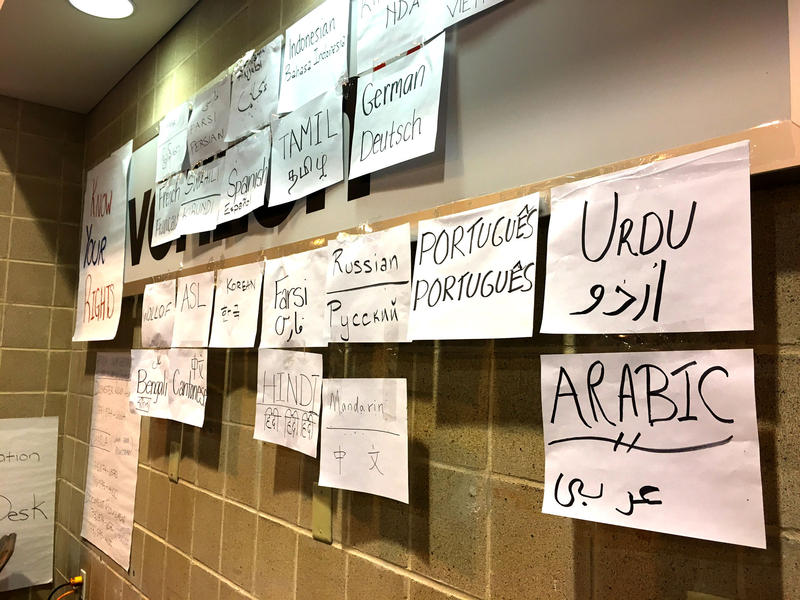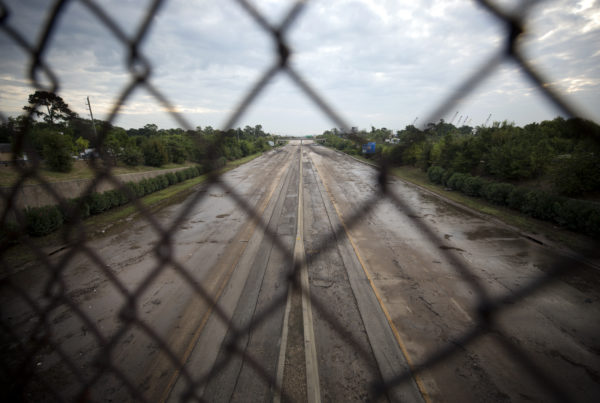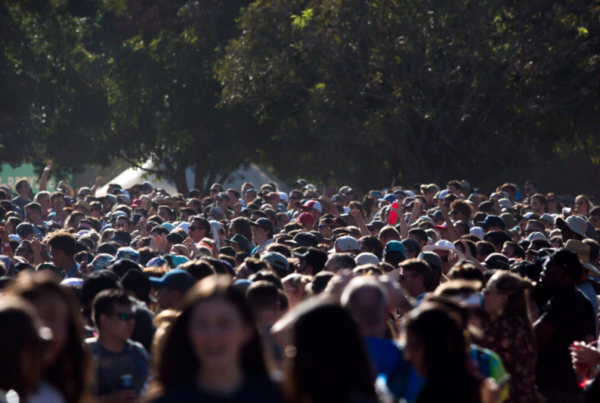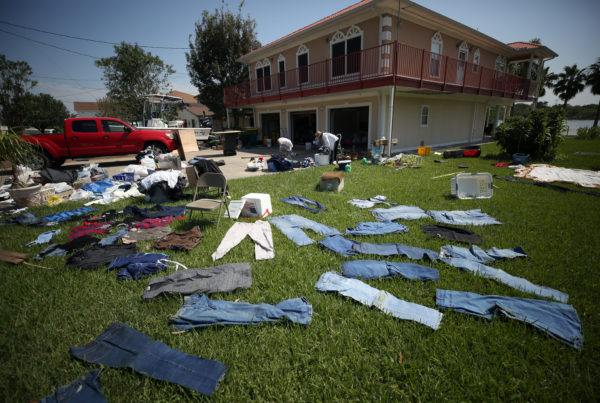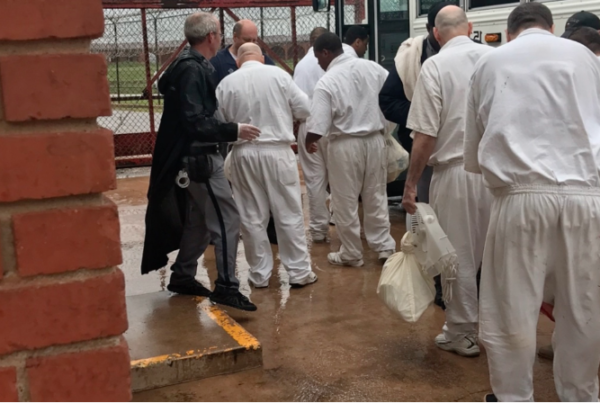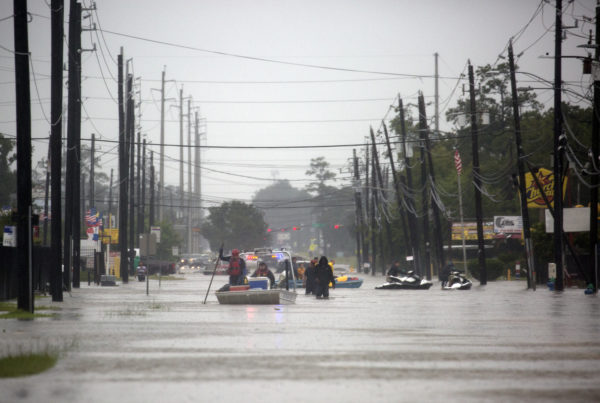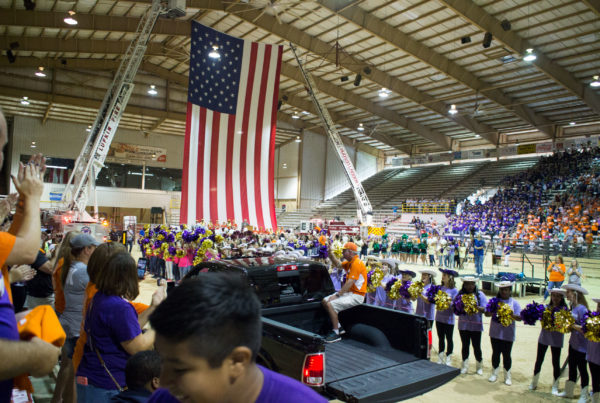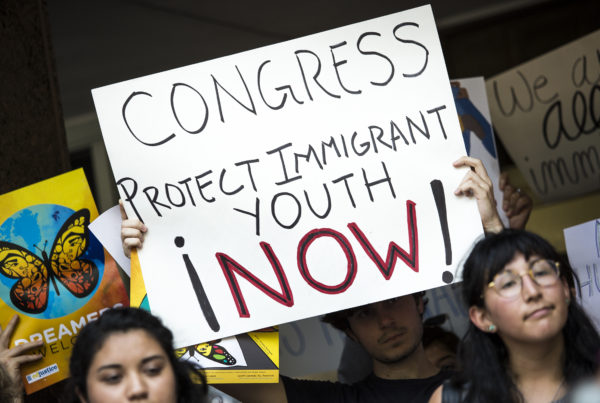From KERA:
Houston bills itself the most diverse big city in America. A quarter of the population was born outside of the U.S. – and a third of that number is undocumented. Because of federal rules that limit aid to those residents, that presents a huge challenge after a disaster like Hurricane Harvey.
For nearly 600,000 people, the storm has turned anxiety about immigration raids and deportations into a real fear to seek shelter – despite the fact that Houston officials have said they would not ask for immigration status or papers at the city’s shelters.
In addition, many will likely not see much financial aid from the federal government.
“If you’re undocumented completely and you don’t have a U.S. citizen child who’s under the age of 18, you are not eligible for any type of FEMA relief,” says Kate Vickery, the executive director of the Houston Immigration Legal Services Collaborative.
Vickery is one of the immigration advocates who has been working at the NRG Center – one of the three biggest shelters for Harvey evacuees. These advocates are trying to make sure that people who are undocumented can get disaster assistance from other sources.
According to the FEMA website, undocumented immigrants are mostly only eligible for disaster relief assistance under different programs run by state and local agencies as well as voluntary agencies.
Though, there is some good news for parents who have U.S.-born children: they can apply for aid from FEMA on behalf of their kids, who are under 18, without having to provide information on their own immigration statuses. But Vickery worries many won’t.
“We know that people are less inclined to apply for certain public benefits because of this kind of culture of fear around immigration enforcement and the federal government this year especially,” she says.
A controversial “sanctuary cities” law in Texas was set to go into effect September 1. SB4 would have given police and other law enforcement the authority to question the immigration status of people they arrest or even stop in routine interactions. The law, as passed, also sought to punish local government officials who don’t cooperate fully with all federal immigration requests. That law was temporarily blocked by a federal judge last week.
At the shelter, Vickery and her colleagues have posted signs in numerous languages – everything from Bengali to Cantonese and Urdu to Portuguese.
They want to make sure that language, at least, deters no one from asking for help.


